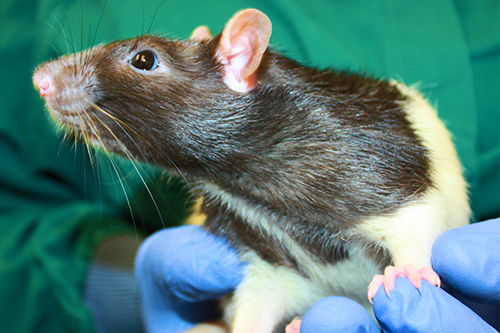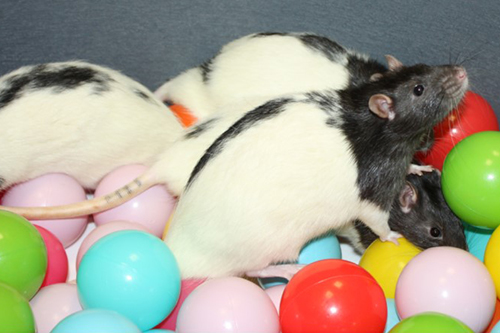

A new continuous professional development course developed by Bristol researchers that builds on more than two decades of animal welfare research has launched online.
The 3Hs (housing, handling and habituation) programme, for researchers working with animal models, is funded by the National Centre for the Replacement, Refinement and Reduction of Animals in Research (NC3Rs) and the Biotechnology and Biological Sciences Research Council (BBSRC), and seeks to help improve the welfare of laboratory rodents.
Underpinned by the principles of the 3Rs (reduce, replace and refine), the aim of the online course, is to help researchers reduce the stress animals can experience during methods used for their routine care.
The principles of 3Rs, developed over 50 years ago as a framework for humane animal research, are fixed in UK and European law. Where it is necessary to use a living animal to achieve a specific scientific objective, the purpose of the 3Rs is to use methods which minimise the suffering of the animal – aiming to replace them, where possible, with alternatives; to reduce the number of animals used and to refine techniques that involve animals.
The research team behind the 3Hs initiative explained: "Laboratory rodents play an important role in understanding complex biological systems and contribute to the challenging process of understanding disease and developing new treatments. The 3Hs and the online course provides examples of methods that can benefit animal welfare in these environments.
"We have also been able to show that methods which habituate rodents to human handling and reduce negative associations and stress, can benefit both animal welfare and research objectives."
Studies by the research team have demonstrated that positive welfare benefits can be achieved using simple interventions such as using rewards to form positive associations with human interactions and playpens to provide social and environmental enrichment.
Over 1,700 delegates from 49 countries recently attended a special webinar event to mark 3Hs online launch, and nearly 1,000 people have already completed the CPD course.
Papers demonstrating the impact of refinements to handling and restraint methods in rodents
'Impact of refinements to handling and restraint methods in mice' by Jennifer R Davies, Dandri A Purawijaya, Julia M Bartlett, Emma SJ Robinson in Animals [open access]
'Refinement of handling and dosing methods for rats and mice' by J Bartlett, J Davies, D Purawijaya, J Hinchcliffe, E Robinson in Animal Technology and Welfare [open access]
'The use of ball pits and playpens in laboratory Lister Hooded male rats induces ultrasonic vocalisations indicating a more positive affective state and can reduce the welfare' by Justyna K Hinchcliffe, Megan G Jackson, Emma SJ Robinson in Laboratory Animals
'Rat 50 kHz calls reflect graded tickling-induced positive emotion' by Justyna K Hinchcliffe, Michael Mendl, Emma SJ Robinson in Current Biology [open access]






